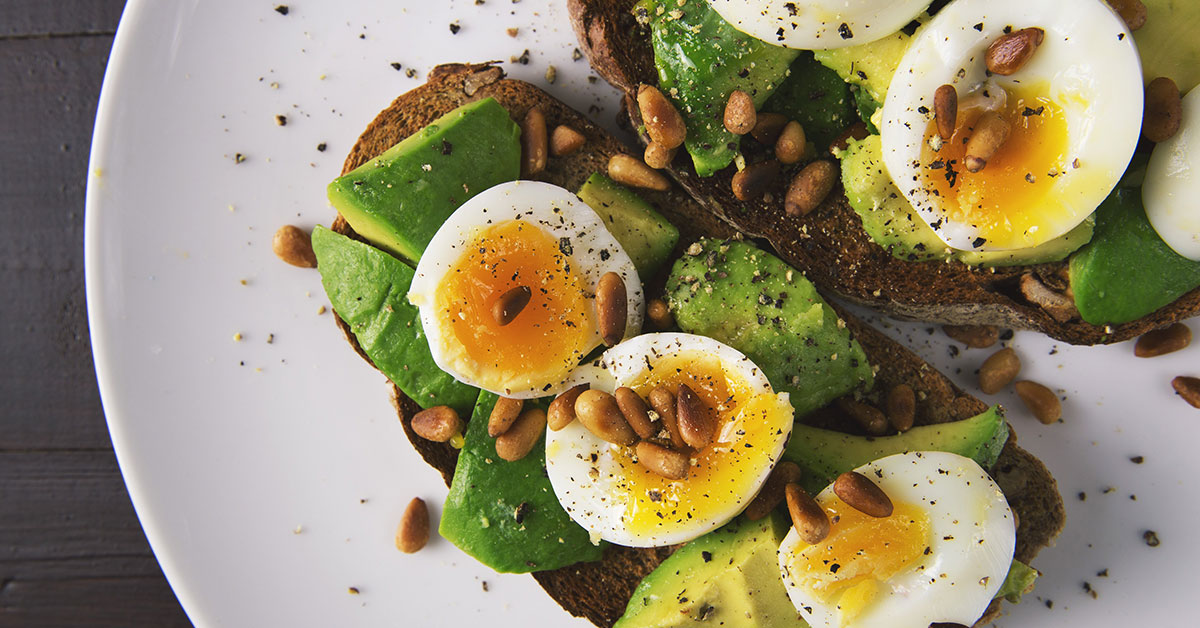Revised – originally published on August 28, 2018
“How much protein do I need?”
This is one of the most common questions I get asked. Unfortunately, there is no simple answer to this question because it is different for each individual. Factors include: Age; Weight; Body Composition; Exercise
Timing and quality of protein are important to consider, beyond just the amount of protein.
What is protein, and why do you need it?
Protein is one of the three macronutrients [carbohydrates, protein, and fat] that your body requires in large quantities to survive. Protein is a part of every cell within the body. It helps to carry out multiple important functions on a daily basis. The first thing that comes to mind when people think about the role of protein is building and repairing muscle. It is true that protein is necessary for building and repairing the body’s tissues- hair skin, eyes, organs, and of course muscle. It also helps to carry out many other body functions.
How much is enough?
The Recommended Dietary Allowance (RDA) for protein is 0.8g/kg of body weight per day. This recommendation is the minimum amount you need to meet your basic nutritional requirements, not necessarily the amount you should consume every day to promote optimal health. Studies show that active individuals, children, and older adults require more high-quality protein than inactive adults. Physical activity increases protein needs, and also increases efficiency with which muscles use the dietary protein.
- 1.4-2.0g protein/kg body weight/day for strength training is recommended by the International Society of Sports Nutrition
- 1.2-1.4g protein/kg body weight/day for endurance athletes is recommended by the American College of Sports Medicine
Recreational athletes should aim for somewhere between the range of 1.1-1.4g protein/kg body weight/day. Aging individuals should aim to consume at least 1-1.2g protein/kg of body weight a day to maintain muscle mass and function. Studies suggest that the combination of increased protein intake and exercise may help prevent and treat muscle loss that occurs with aging.
You shouldn’t focus on protein alone, but the ratio of carbohydrate to protein. Protein is needed to help repair and build muscle, and carbohydrates are needed to provide fuel.
Adequate intakes of calories and carbohydrates reduce the need for amino acid oxidation (the breakdown of protein) for energy and spare dietary protein and muscle tissue.
Does timing really matter?
Experts believe that equally distributing protein intake throughout the day is important for maximizing utilization. Consuming adequate amounts of protein throughout the day has been shown to provide improvements in appetite and weight management, as well as help to prevent the natural loss of muscle mass due to exercise or aging. Most people do not eat much protein at breakfast or lunch and consume the majority of their protein at dinner. Our bodies do not store protein as protein, so it is important to spread intakes throughout the day.
A study in the Journal of Nutrition showed that muscle protein synthesis (building) was 25% higher when evenly distributed across all meals. Protein intake after exercise can help aid in recovery because the muscles are most sensitive to nutrient intake due to increased blood flow to them. Aim for 15-30 grams within an hour post-workout to optimize repair and recovery.
Protein is protein, right?
The type of the protein should be considered. Beef, poultry, pork, eggs, and dairy certainly provide high-quality protein. Many plant foods including whole grains, beans, and other legumes, nuts, seeds, and vegetables also provide quality protein. Choosing quality protein sources means looking beyond the amount of protein, and taking into consideration the entire nutrient profile. Some high-protein foods are healthier than others because of what comes along with it.
| 6oz porterhouse steak | 6oz wild salmon | 1 cup lentils |
| 40g protein | 35g protein | 18g protein |
| 12g saturated fat* | 1.7g saturated fat | >1g saturated fat |
| *60% of recommended daily intake for 2000 calorie diet |
*excellent source of omega-3’s |
*15g fiber |
The point is, focus on the overall nutrient profile and not just the amount of protein to have a well-balanced diet.
Are you meeting your protein needs?
The answer is different for each individual. Most American’s are meeting the RDA of 0.8g protein/kg of body weight a day, but that is just the minimum required. The National Academy of Medicine established an acceptable macronutrient range for protein as 10-35% of calories for adults. Most active individuals should aim to be somewhere in this range to optimize overall health and physical performance.
Many people ask if they need to take a protein supplement to meet their needs. You don’t NEED to take a supplement; you can meet your protein needs through food intakes. That being said, they can be a convenient source of protein, especially if you struggle to consume enough protein.
Is there such a thing as too much protein?
The main concern of consuming too much protein is about renal function. Excessive protein intakes promote urea formation and can increase GFR and kidney nitrogen load. If an individual does have impaired renal function, they should aim for the lower end of the range for protein intakes. Excessive protein intakes can also exceed the liver’s ability to convert excess nitrogen to urea, which leads to nausea, diarrhea, and possibly even death. Most healthy individuals do not need to worry about over-consuming protein, but you can avoid these concerns by consuming amounts within the acceptable range of protein set by the National Academy of Medicine.
Key take-away messages:
- Develop a plan that provides adequate calories, carbohydrates, protein and fat
- Distribute protein equally throughout the day
- Focus on the full nutrient profile of the protein source, not just the amount of protein
- Consume 10-35% of your calories from protein to optimize health
My favorite protein foods:
- Greek Yogurt (Chobani Hint of, YQ by Yoplait)
- Peanut butter (Nutty Sisters or Hy-Vee fresh ground)
- Eggs (especially an egg sandwich or omelet)
- Chicken breast
- Salmon
- Nuts and seeds
- Hummus (Oasis or Sabra)


